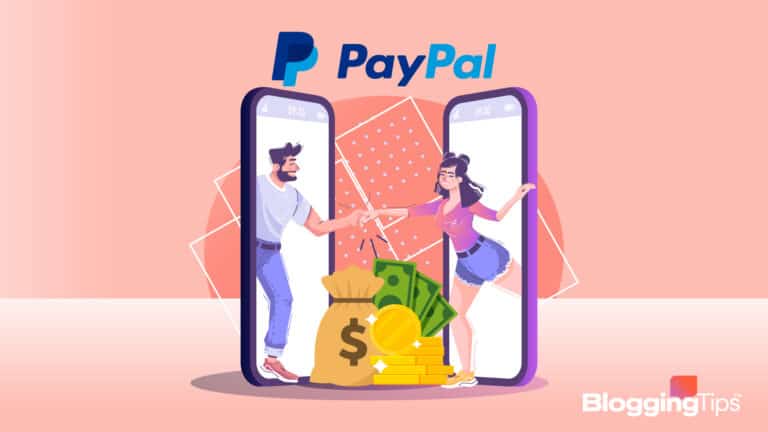Are you looking to cash out by selling your website?
It could be that you no longer have the time or motivation for the day-to-day management of the website and you want to move on to something less demanding.
Or maybe you feel you have done all you can to grow the website and it’s time for a new owner with more resources that can take the website to the next level.
Whatever the reason, you must learn how to get the best price for your business and the best places to meet with potential buyers.
In this article, I will show you a proven step-by-step process for selling websites profitably and the things you need to do to boost the value of your asset.
How To Sell Websites Profitably
Here are the questions people are asking on search engines about the best way to sell websites at maximum value:
What Is The Best Place To Sell A Website Online?
You can sell a website via an online marketplace (e.g. Flippa, Motion Invest, and Niche Investor) or website brokers (e.g. Empire Flippers, Business Exists, and Latona’s).
Online marketplaces are just places for sellers and buyers to interact, while brokers offer a more personal touch.
What Types Of Websites Sell Best?
Buyers tend to seek out blogs, membership sites, and eCommerce websites that are in evergreen niches — sectors that are not subject to cyclical changes in reader interest or the economy.
Such niches include health & wellness, sports & hobbies, education, entertainment, and food & recipes.
What Is Needed To Sell A Website Profitably
- A Thriving Website — buyers are interested in websites that are already profitable enough to be a source of passive income or have the demonstrated potential to grow into something much bigger. This means your website must be worth buying before you can even consider listing it for sale.
- Your Financial And SEO Data — you must have factual data on your revenues and expenses for all the years you have been managing the website, as well as key SEO information like your historical website traffic data, traffic sources, search rankings, and more.
- A Website Broker — you may need the services of an expert to help you navigate the complicated process of selling a website, especially if it’s a large site that will go for a significant sum of money. A broker will help you market your site to the right buyers and help you sort through any issues that may come up along the way.
How To Sell A Website Profitably: Step-By-Step Instructions
Selling your website is a major decision and if you follow the steps outlined below, you can be sure of a successful sale.
- Establish processes for the day-to-day running of your website
- Increase your organic traffic
- Properly document your financials and traffic data
- Get a valuation for your website
- Join an online marketplace
- Customize your sales page to highlight your strengths
- Be patient and only sell for the right price
Step 1: Establish Processes For The Day-To-Day Running Of Your Website
Most buyers are looking for a ready-made website business that can run on its own with minimal hands-on work on their part.
If you are someone that has been doing almost everything yourself, you must put systems in place and hire full-time or freelance staff to help minimize your involvement in the effective functioning of the website as much as possible.
For example, suppose you currently handle all the content creation for your blog.
In that case, you can hire a content strategist who will be responsible for creating an editorial calendar each month, freelance writers to write the content, freelance graphic designers to create visual content, and freelance editors to vet the content for errors before it is published.
The do-it-all owner of an eCommerce store can outsource order fulfillment and shipping to Amazon FBA, while customer support duties can be handled by a trained virtual assistant.
Basically, the more you can make the website run on autopilot, the more desirable it will be to most investors.
You can also use a business messaging app like Slack to consolidate team communications on one platform and a project management tool like Trello for assigning tasks to your freelancers and other members of your team.
Step 2: Increase Your Organic Traffic
If your website currently relies heavily on ads or influencer marketing to attract traffic, you must take the necessary steps to grow your organic traffic.
Buyers put a lot of value on organic traffic because it is sustainable and much cheaper than advertising or influencer marketing.
For example, a beauty products eCommerce site that relies on influencer marketing by Kim Kardashian for much of its traffic will face a serious decline in its revenues if she switches and starts promoting a competitor in the same niche to her followers.
If you already attract much of your audience from organic sources of traffic, you can go a step further and set up email marketing and social media marketing campaigns to build a relationship with people that visit your site and encourage them to become returning visitors (blogs) or repeat buyers (eCommerce sites).
Step 3: Properly Document Your Financials And Site SEO Data
Investors will need verifiable proof that the performance statistics you provided on your listing page are the real deal.
They will need months of financial reports and SEO data that will help them build a more realistic picture of how well your website has performed in the past and what they can expect in the future.
You should be able to get accurate financial data from your accounting software if you use one, and if not, most eCommerce platforms let you export detailed sales reports.
Some of the financial information that will be required include:
- Profit and loss reports
- Cashflow statement
- Proof of sales
- Inventory
- Ad spend
Regarding SEO data, you should find the information you need from Google Analytics and Google Search Console reports.
Some of the things you need to highlight are:
- Average site traffic
- Site traffic sources
- Average bounce rate
- Average CTR (click-through rate)
- Average conversion rate
Step 4: Get A Valuation For Your Website
To ensure you are selling your business for its true market worth, you need to figure out its fair value and then add a premium if market demand is driving up its market value.
The fair value is the number that you can’t go below, while the market value is what people are willing to pay for the type of business you want to sell.
The value of a website is usually calculated as three times the annual profit, but the multiple can be higher depending on your niche and the growth potential of your platform.
The prices that people are paying for websites that are in your niche and are similar to yours in terms of size and revenue will give you an idea of the market value of your business.
If the market value exceeds the fair value, then try to get as much money as you can.
If the current market prices are below the fair value of your business, you may be better off waiting until you can find a buyer that recognizes the true worth of your business.
Companies like Flippa, Empire Flippa, FitSmallBusiness, and GoDaddy offer free online website value calculators that can help you get an idea of how much people will be willing to pay for your business.
I must point out that these tools are not perfect.
They tend to base their calculations on past financial performance, but that doesn’t account for the value of your brand and the future growth potential of your business.
This is why a website broker can be very helpful. They know what people are paying for comparable websites and how to calculate the future potential of your brand.
They are also incentivized to help you get as much money as possible, since the bigger the purchase price, the more valuable their commission will be.
Step 5: Join An Online Marketplace
Once you have done all the preliminary work to boost the value of your website and you have obtained a valuation that reflects the true worth of your business, it’s time to choose the right place to sell your business.
There are quite a few online marketplaces and brokerage sites that have good reputations and proven track records.
Below is a list of such platforms and what they charge for their services:
- Flippa: you can sell all types of websites on the platform; including blogs, membership sites, affiliate sites, and eCommerce websites. They charge a $49 listing fee and a 10% commission for transactions that are worth $50,000 or less. It goes down to 5% for transactions over $100,000, and there is a VIP program for businesses that are worth more than $10 million.
- Motion Invest: only content websites can be sold on this platform. You can sell your blog to buyers on the platform or to the Motion Invest team itself. They don’t charge a listing fee, but you will pay a 20% commission for sales worth $20,000 or less. It goes down to 15% for sales above that.
- Niche Investor: this is the platform for selling niche websites that cater to a narrow audience. You can choose to list your business on the platform for a $25 fee or sell directly to the Niche Investor team. The commission fee depending on transaction size can be 20% ($50,000 and under), 15% ($50,000 to $100,000), 10% ($100,000 to $700,000), and 5% ($700,00 and above).
- Empire Flippers: the online brokerage site will vet your business before agreeing to put it on their site. Your website must have a track record of making at least $2000 per month over a 12-month average. They will also help you throughout the entire process and their tiered commission fee can be 15% ($700,000 and under), 8% ($700,000 to $5 million), or 2.5% ($5 million and above).
- Business Exits: this is the platform for selling websites that have a valuation between $2 million to $60 million. The company has an impressive 91% success rate and there are no upfront costs. They only get paid if the sale is completed and the commission fee depends on the size of the transaction.
Step 6: Customize Your Sales Page To Highlight Your Strengths
Before creating your listing page, you must first identify who your prospective buyers are and the key metrics they will use to evaluate a potential investment.
It’s those metrics that you will highlight on your sales page.
For example, if you are listing an online store, buyers will be interested in metrics like store sessions by traffic source, sales conversion rate, shopping cart abandonment rate, returning customer rate, and customer lifetime value.
You should check out other websites that were recently sold on the major marketplaces to see how each owner designed their sales page.
If you can provide all the necessary information, potential buyers will be more willing to engage with you and there will be fewer arguments over the validity of your listing price.
Step 7: Be Patient And Only Sell For The Right Price
You shouldn’t be in a hurry to sell your business unless you need cash desperately.
Keep investing in your website to boost its value and be willing to wait until the right buyer comes along.
The average length of time it takes to sell a website is 2.5 months.
Fortunately, most marketplaces will let you keep your site listed for up to 180 days.
Once you find a serious buyer, and you have successfully negotiated a price that satisfies both parties, you should get a lawyer or solicitor to help you prepare the agreement for the transfer of ownership.
I recommend using an escrow service to get your money so you can avoid scammers.
All the marketplaces listed above have built-in escrow services on their platforms.
When you get your money, you will then give the new owner access to your CMS, web hosting account, and detailed information about your business operations.
You should also introduce the new owner to the members of your team on your message platform or via email.
Similar Tutorial Types To Check Out
- How to Buy an Online Business: this article will show you where to buy any type of online business you are interested in, and how to determine whether a purchase opportunity is a good investment.
- How to Buy and Sell Websites: discover why website flipping can be a very profitable venture and how you can get started.
- How to Find Businesses for Sale: this article will help you discover the best marketplaces to meet with people that are interested in selling brick-and-mortar businesses as well as thriving online ventures.
Wrapping Up
A successful sale of your website will be a sweet reward for all the hard work you put into building it from the ground up into a revenue-generating business.
That will only happen if you diligently follow all the steps outlined in this article and are willing to get help from experts (brokers and lawyers) when you encounter issues that are outside your area of expertise.
If you know of other online marketplaces for buying and selling websites that are not listed in this article, please feel free to share them in the comments section.






